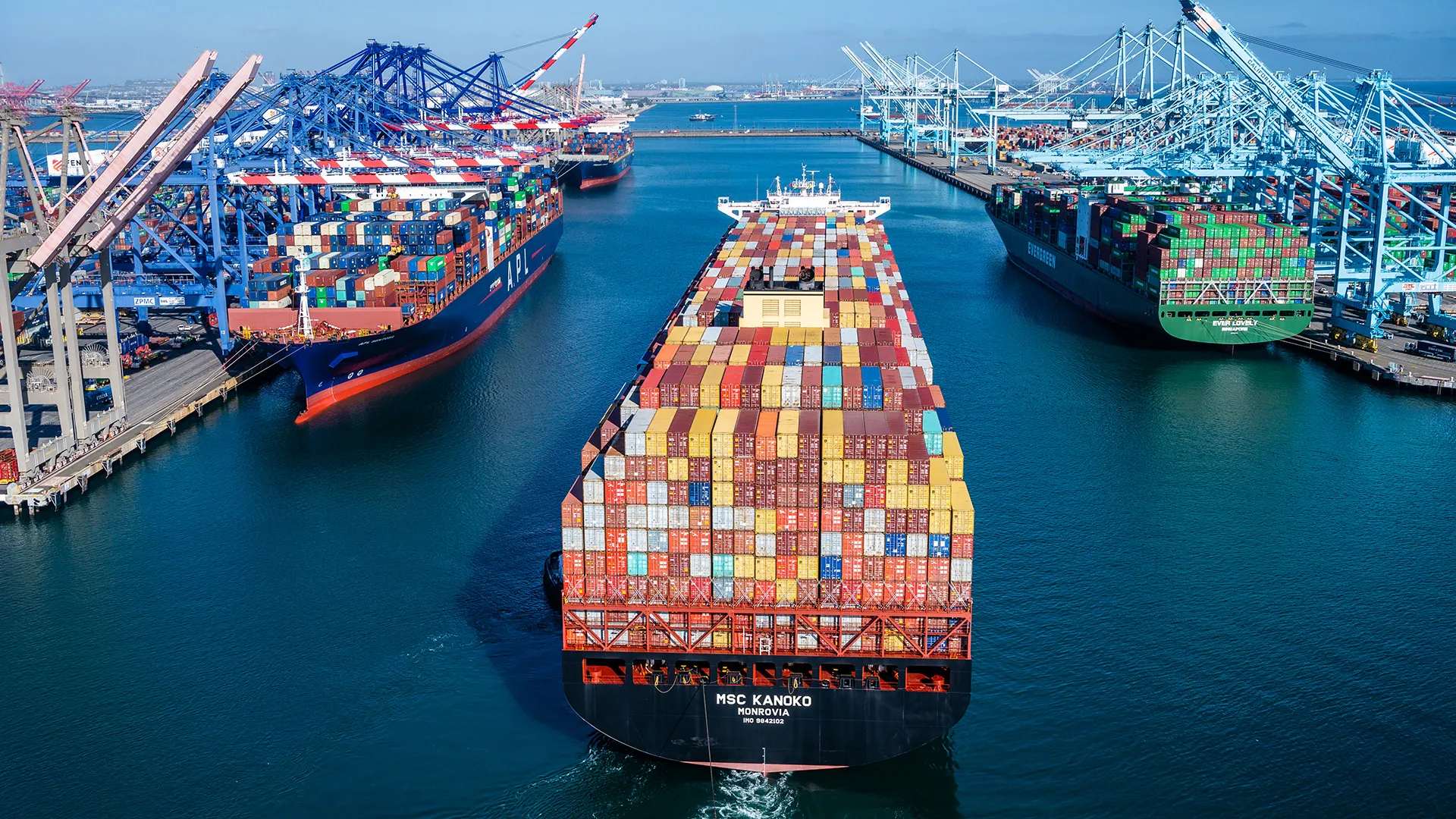Spot Rate Surge Reaches Its Peak
As of January 26, 2024, the container shipping industry witnesses a significant shift. The massive rerouting of container ships around Africa’s Cape of Good Hope, initially causing a spike in spot rates due to the Red Sea crisis, now shows signs of reaching its zenith. The initial surge in rates, driven by these diversions, appears to be plateauing, with several European lane indexes retreating from their peaks.
Shanghai Index Indicates Market Cooling
In a notable development, the Shanghai Containerized Freight Index (SCFI) recorded a 2.7% drop in the week ending Friday, marking its first decline since late November. This trend hints at a broader stabilization in the market, contrasting the previous continuous upward momentum in rates.
Shift From Pandemic-Era Dynamics
The current situation starkly differs from the pandemic years of 2020-2022. Unlike the demand-driven supply chain crisis during the pandemic, the current rate increase is predominantly supply-driven. The extension of voyage times due to liner diversions around the Cape of Good Hope has strained shipping and container equipment supplies.
Future Outlook: Stabilization and New Vessel Deliveries
The industry anticipates further stabilization as shipping lines adjust to longer routes and incorporate a record number of new ships slated for delivery this year. The upcoming Chinese New Year holiday is also expected to temporarily reduce vessel demand, potentially easing rate pressures.
Predicted Rate Trends Post-Chinese New Year
Experts, including Lars Jensen, CEO of Vespucci Maritime, anticipate a shift in the market post-Chinese New Year. While spot rates are expected to decrease slightly, contract rates might rise as the industry possibly adapts to a prolonged round-Africa routing. This pattern is evidenced by the contrasting movements of the Shanghai Containerized Freight Index (SCFI) and the China Containerized Freight Index (CCFI).
Related: Top 10 Container Shipping Companies Worldwide in 2023
Platts and Drewry Indices: A Mixed Picture
Data from Platts and the Drewry World Container Index (WCI) present a mixed picture. While Platts assessments indicate a potential peak in spot rates, the WCI shows a continued albeit slower rise in European markets. This divergence reflects the complex and varied responses across different shipping lanes.
Freightos Baltic Index: A Steady State
Lastly, the Freightos Baltic Daily Index (FBX) reveals a relatively steady state in global composite rates, with minor fluctuations in specific routes. This stability, however, masks the underlying high rate levels, especially in U.S. import lanes, that remain a legacy of the Red Sea crisis.
In conclusion, the container shipping industry is experiencing a nuanced adjustment period post-Red Sea crisis, marked by a mix of stabilization and continued high rates, influenced by both lingering effects of the crisis and new market dynamics.
